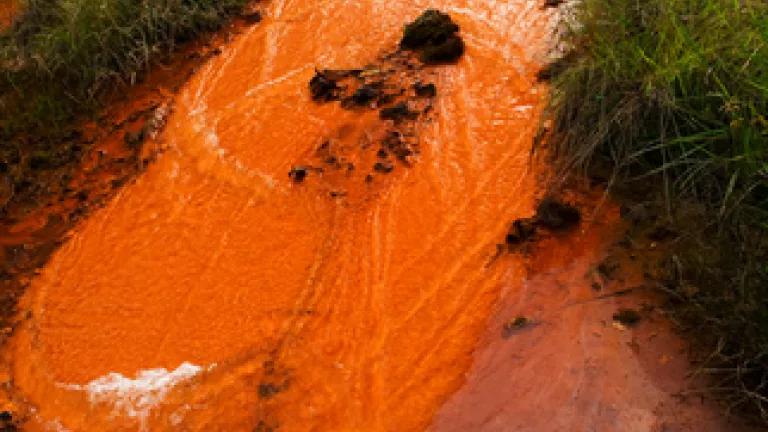
This is NOT an April Fool's joke: At long last, the U.S. Environmental Protection Agency appears to be restoring science to its rightful place in protecting Appalachian communities from the world's worst coal mining.
So here's what happened. Today EPA announced a set of policies aimed at clarifying and strengthening permitting requirements for strip mining --including mountaintop removal -- to prevent "significant and irreversible damage to Appalachian watersheds." In a press statement, EPA Administrator Lisa Jackson explained:
"Let me be clear: this is not about ending coal mining. This is about ending coal mining pollution. The people of Appalachia shouldn't have to choose between a clean, healthy environment in which to raise their families and the jobs they need to support them. That's why EPA is providing even greater clarity on the direction the agency is taking to confront pollution from mountain top removal. We will continue to work with all stakeholders to find a way forward that follows the science and the law. Getting this right is important to Americans who rely on affordable coal to power homes and businesses, as well as coal communities that count on jobs and a livable environment, both during mining and after coal companies move to other sites."
Specifically, EPA issued new comprehensive guidance on permitting under the Clean Water Act to minimize environmental, water quality and human health impacts from mining. Also, in the interest of greater transparency, the agency is developing a permit tracking website so that the public can determine the status of mining permits. Finally, the agency publicly released two scientific reports -- one summarizes the aquatic impacts of mountaintop mining and valley fills and the other sets a scientific benchmark for unacceptable levels of conductivity that threaten stream life. (Both reports are being published for public comment and submitted for peer review.)
[UPDATE: Sen. Robert Byrd (D-WV) issued the following statement in response to EPA's action today: “Today’s announcement will hopefully now have everyone reading off the same page. I, along with other elected officials, coal operators, the mining community, and environmentalists from West Virginia have been asking for a clearer, concise policy on moving forward with mountaintop mining permits and water quality issues. I am pleased that EPA Administrator Jackson took our concerns about the need to provide clarity very seriously and has responded with these guidelines.” Perhaps this does indeed signify the beginning of the end for mountaintop removal. Certainly, other legislators like Sen. Lamar Alexander (R-TN) hope so. Alexander, who is co-sponsoring The Appalachia Restoration Act (S. 696) to ban the practice, stated in the wake of EPA's action: “Coal is an essential part of our energy future, but it is not necessary to destroy our mountaintops in order to have enough coal to meet our needs.”]
The New York Times provides early coverage -- quoting my colleague Jon Devine.
(Mining pollution in WV stream. Photo by J. Henry Fair)
Consider that mountaintop mining has already polluted or obliterated nearly 2,000 miles of streams throughout Appalachia. That's what happens when, after blasting to expose thin seams of coal, companies use giant earth-movers to dump tons of "overburden" -- dirt, rock, rubble -- over the side of the mountain and into waterways coursing through the valleys below. For every ton of coal extracted, another 20 - 25 tons of mining waste is disposed of in so-called valley fills. That's millions of tons of waste burying Appalachian streams or polluting them with dissolved metals from the debris.
EPA's new water quality standards for surface coal mining in Appalachia are intended to protect 95 percent of the region's aquatic life and freshwater streams, the agency said. During her press conference, Administrator Jackson told reporters that the protective measures would likely block mountaintop-removal projects from dumping wastes in streams. There are "no or very few valley fills that are going to meet this standard," Jackson said.
Without a doubt, today's action by EPA to protect waterways from coal mining pollution reinforces the agency's commitment to upholding the Clean Water Act.

